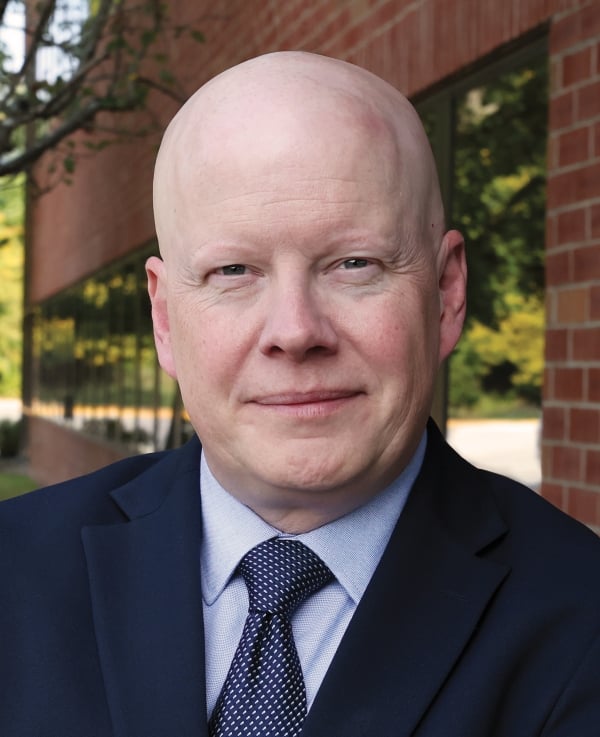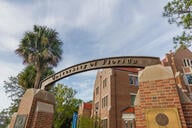You have /5 articles left.
Sign up for a free account or log in.
I first got to know Craig Lundsten in 2018, when he was working with Emeritus. Earlier this summer, Craig and I had the opportunity to catch up and talk about his new role as special assistant to the president for transformational partnerships at Excelsior University. Until that conversation, I had not known anything about Excelsior University, and I found how the university is designed and Craig’s new role to both be fascinating. Wanting to explore further and share what I learned, I asked Craig if he’d be willing to share his thoughts in this space.

Q: Tell us about Excelsior University. I had no idea that New York has a fully online, private, nonprofit university that enrolls over 15,000 students. Why isn’t Excelsior on more of our radars?
A: Well, fortunately, with more than 15,000 students and nearly 200,000 alumni, we’re not keeping off everyone’s radar. All joking aside, Excelsior University is really an amazing university with a history of serving the large and growing number of nontraditional students who don’t always see themselves and their needs being served by traditional institutions.
The university was founded in 1971 by the Regents of the State of New York, with support from the Ford Foundation and the Carnegie Corporation, to help adult learners gain recognition of their prior learning and earn an academic credential. Due to our focus on serving nontraditional adult learners, we were an early adopter of both online education and competency-based education. In 1998, we became a chartered, private, nonprofit institution (called Regents College). We changed our name to Excelsior College in 2001, aligning our identity with New York’s state motto, which derives from a Latin phrase for “ever upward” and then evolved into Excelsior University in 2022. We’re accredited by the Middle States Commission on Higher Education, and our degree programs have earned programmatic accreditation from groups including ACEN, IACBE and ABET.
Today, we enroll more than 15,000 students, who are, on average, 35 years old. These learners are enrolled in associate, bachelor’s and master’s degree programs in business, cybersecurity, engineering, information technology, nursing, public administration and public health, among many others. Our students and alumni live throughout the United States, in addition to a growing international student and alumni population. Many of our students complete multiple degrees with us.
That said, as we do not spend anywhere near as much on mass marketing as some of the other medium to large online higher education institutions in the U.S., we have not yet developed a coast-to-coast brand name. We have instead focused on growth through developing strong relationships with employers and the military (both veterans and active service). We also have several thousand students who have completed more than one program with the university, which I think speaks well to the value students and alumni see in our programs. I am hoping we can continue to be more visible and active in the ongoing dialogue regarding the vital role that higher education plays in our society and help bring together stakeholders from throughout the system to help support its continued evolution and success.
Q: Your title is special assistant to the president for transformational partnerships. What does that mean? What do you do all day? What are your big goals? And should every university have someone with your title?
A: As mentioned above, Excelsior University’s history has been focused on serving nontraditional learners. Our team’s success in doing this has led to several years of student enrollment growth and financial stability. Our president, David Schejbal, and our leadership team acknowledge the critical state of higher education in the U.S. Like some other tuition-dependent institutions, we know our long-term ability to continue our student-focused mission will require new ways of operating.
While Excelsior is in a strong financial position, we have competitive challenges that we are actively seeking to address. Most of our degree programs are delivered online. This once made us different, but it is now much more common and puts us in competition with online providers from around the country and the globe. We are not a small university, but we do not have a large endowment and depend on tuition revenues. We have several great degree programs but are too heavily dependent on several programs in high-demand fields of study. Additionally, there are several fields of study we have identified that present great opportunities that we do not yet offer, and we do not currently offer any professional doctorates.
The university’s plan to confront these challenges is to work with like-minded educational institutions and groups to build a student-focused and administratively frictionless learning environment, which Dr. Schejbal has named the Constellation. We will grow the Constellation through partnerships, mergers, and acquisitions so our students can access the learning opportunities they need, where they need them, and how they need them. Dr. Schejbal and the leadership team have been leading several initiatives over the last several years to create and grow the Constellation.
The special assistant position is a new role and was created to specifically focus on this work. I started at Excelsior in late April and have focused my time on meeting with our institutional leaders and learning about the university, our students and alumni, and our programs. I am working with President Schejbal and Excelsior’s leadership to help highlight gaps in our current program offerings and identify where partners and/or acquisitions can help further grow the Constellation. I am currently working on a portfolio of initiatives with several external partners and the corresponding subject matter experts from Excelsior. My goal is to help grow the Constellation and support our current and future students.
Speaking from my perspective, it would certainly make outreach to other institutions easier if there was a dedicated person who could be contacted to talk about new ideas and opportunities. I think that every higher education institution, especially those that are tuition dependent and not sitting on a large endowment, should be thinking about where they are today, where they want to be in the future and how they are going to get there. While many institutions may be able to get to their intended future state on their own, developing mutually beneficial partnerships or seeking opportunities to merge with other complementary institutions may help them get there faster and more efficiently.
However, an institution does not need to start with a dedicated resource. In the case of Excelsior, the team started this work as a group effort and were doing a great job but realized that the goals they had set required bringing in someone to give it full-time focus. In my conversations with leaders from other institutions, it has become clear that immediate day-to-day operational responsibilities can sometimes delay the steps needed to explore collaborations with other institutions.
I think leaders from different institutions need to be able to have exploratory conversations about how we can work together. Maybe nothing will come from many of these conversations, but we need to start somewhere. We also need to reduce (and preferably eliminate) the stigma that having a conversation, exploring a partnership or discussing a collaboration means that an institution has failed or is on the verge of collapse. We are eager to talk with institutions that want to learn more about what we’re doing and explore opportunities.
Q: In your career, you’ve moved across the for-profit and nonprofit education sectors. What advice do you have for anyone thinking about moving from a company to a university, or the other way around?
A: I have worked in global education for more than 20 years and have had the opportunity to work with, and for, several tremendous educational groups. Some of these groups have been institutions and others have been companies, some for-profit and others nonprofit, some U.S.-centric and others global, some centered on face-to-face instruction while others leveraged hybrid and online program delivery. However, I think these distinctions are less important than what each of these groups is working to accomplish. The great groups share a student-focused ethos which permeates everything they do, as well as an understanding that new methods are sometimes required to best serve our current and future learners. These are groups that use data to build the programs and services that learners need to meet their goals. They encourage thoughtful analysis and experimentation and understand that not every hypothesis will be successful. This is what I found at Excelsior, and it is what drew me to really want to join this team.
I think it’s also important to remain open-minded. Global education affects, and is affected by, society at large. I think it’s important to read and listen actively about things that are happening in business, technology, culture and society and think about how these factors will impact and be impacted by education. I try to start every day catching up on things happening in our industry (Inside Higher Ed is one of several resources I tap into on a nearly daily basis). I also encourage participating in education-focused associations. UPCEA, where I currently serve as chair of the New England region, has been a great ongoing support and resource. Peer-based groups are an excellent place to hear from others about what is happening throughout our sector and to see how our peers are confronting these challenges.
I believe most people engaged in higher education share the common goal of positively impacting the lives of our learners. However, higher education institutions face an uncertain future due to regional and global challenges. While some institutions have the resources to address the situation, I do not believe that any specific institution has all the answers. I also believe that we can confront future challenges more effectively if we find ways to work together to create the programs and services our learners need to be successful. I think partnerships, mergers and acquisitions are ways we can support and facilitate that work. I’m looking forward to helping Excelsior University and our partners be a part of the path forward.




